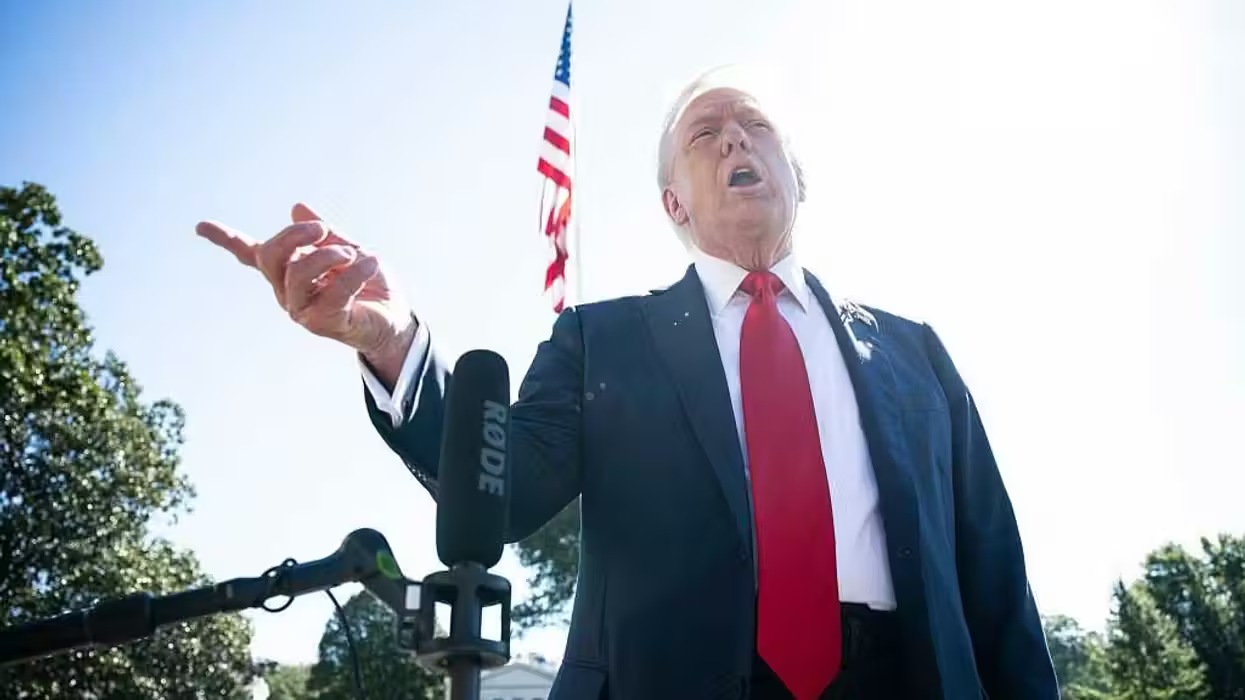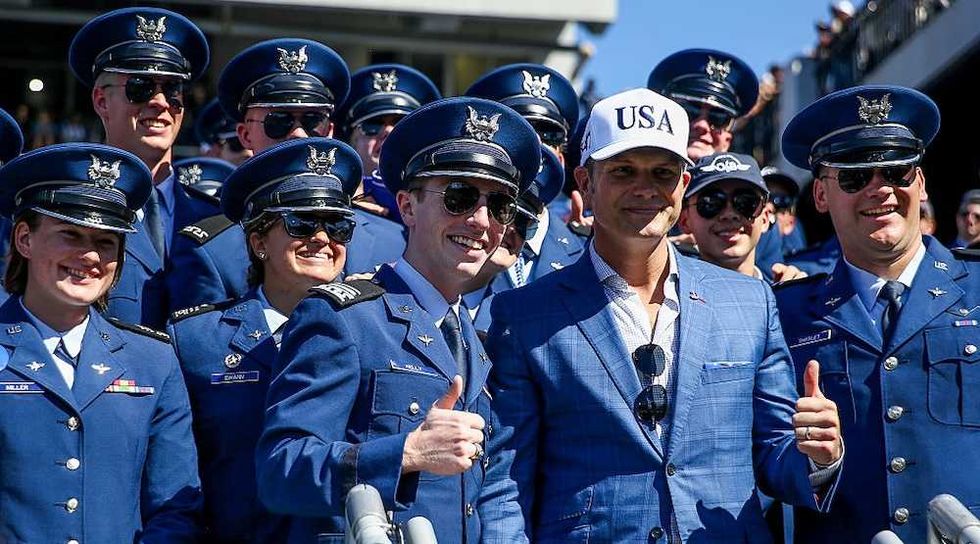
Photo by Graeme Sloan/Bloomberg via Getty Images

The current government shutdown is no calamity — it’s the perfect time to fix a century of bureaucratic rot and rearm the nation for the Chinese challenge ahead.
The United States faces an existential threat from the accelerating military power of communist China — a buildup fueled by decades of massive economic expansion. If America intends to counter Beijing’s ambitions, it must grow faster, leaner, and more efficient. Economic strength is national security.
The ongoing government shutdown may not be popular, but it gives President Trump a rare opportunity to make good on his campaign pledge to drain — and redesign — “the swamp.” Streamlining the federal government isn’t just good politics. It’s a matter of survival.
A government that builds wealth rather than expands debt can out-produce China, sustain deterrence, and restore the American ideal of self-government.
George Washington ran the nation with four Cabinet departments: war, treasury, state, and the attorney general. The Department of the Interior came later, followed by the Department of Agriculture, added by Abraham Lincoln in 1862 when America was an agrarian power.
The modern Cabinet, by contrast, is a bureaucratic junkyard built more in reaction to political problems than by design. The Labor Department was carved from the Commerce Department to appease the unions. Lyndon Johnson invented the Department of Transportation. Jimmy Carter established the Department of Energy in response to the Arab oil embargo. The Department of Homeland Security and the Office of the Director of National Intelligence emerged after 9/11.
The result is a patchwork of agencies wired together with duct tape, overlap, and patronage. A government designed for crisis management has become a permanent crisis unto itself.
A return to first principles starts with a single question: How can we accelerate American productivity?
The answer: consolidate. Merge the Departments of Commerce, Labor, Agriculture, Transportation, and Energy into a Department of National Economy. One Cabinet secretary, five undersecretaries, one mission: to expand the flow of goods and services that generate national wealth.
The new department’s motto should be a straightforward question: What did your enterprise do today to increase the wealth of the United States?
Fewer bureaucracies mean fewer fiefdoms, less redundancy, and enormous cost savings. Synergy replaces stovepipes. The government’s economic engine becomes a single machine instead of six competing engines running on taxpayer fuel.
Homeland Security should be absorbed by the U.S. Coast Guard, which already functions as a paramilitary force with both military and police authority, much like Italy’s Carabinieri. Under the Uniform Code of Military Justice, DHS personnel would share discipline, training, and accountability.
FEMA would cease to be a dumping ground for political hacks. Any discrimination in disaster aid — such as punishing Trump voters — would trigger a court-martial.
The Secret Service would focus solely on protective duties, handing its financial-crime work to the FBI. The secretary of the Coast Guard would gain a seat in the Cabinet.
The Office of Director of National Intelligence should be re-established as the Office of Strategic Services, commanded by a figure in the tradition of Major General “Wild Bill” Donovan. Elements of U.S. Special Operations Command would be seconded to the new OSS, reviving its World War II lineage.
All intelligence agencies — CIA, DIA, FBI, the State Department, DEA, and the service branches — should share common foundational training. The current decline in discipline and capability at the National Intelligence University, worsened by the DEI policies of its leadership, demands urgent correction. Diversity cannot come at the expense of competence.
RELATED: Memo to Hegseth: Our military’s problem isn’t only fitness. It’s bad education.

At the Department of Justice, dissolve the Bureau of Alcohol, Tobacco, Firearms and Explosives. Shift alcohol and tobacco oversight to the DEA, firearms and explosives to the U.S. Marshals.
Let the DEA also absorb the Food and Drug Administration, which would become its research and standards division.
Return the FBI to pure investigation — armed but without arrest powers. Enforcement should rest with the U.S. Marshals. Counterintelligence would move to the Defense Counterintelligence and Security Agency, reinforced by the Naval Criminal Investigative Service.
The IRS should be dismantled and replaced with a small agency built around a flat-tax model such as the Hall-Rabushka plan.
Move the Department of Health and Human Services’ Administration for Strategic Preparedness and Response to Homeland Security. Send its Office of Climate Change and Health Equity to NOAA — or eliminate it entirely.
At the Department of Housing and Urban Development, expand the inspector general’s office tenfold and pay bonuses for rooting out fraud.
The Pentagon needs its own overhaul. Because of China’s rapid military buildup, the Air Force’s Global Strike Command should be separated from U.S. Strategic Command and report directly to the secretary of war and the president under its historic name — Strategic Air Command.
Submarines and silos are invisible; bombers are not. Deterrence depends on visibility. A line of B-1s, B-2s, B-52s, and 100 new B-21 Raider stealth bombers, all bearing the mailed-fist insignia of the old SAC, would send an unmistakable message to Beijing.

With Trump back in the White House, this moment is ripe for radical efficiency. A government that builds wealth rather than expands debt can out-produce China, sustain deterrence, and restore the American ideal of self-government.
George Washington’s government fit inside a single carriage. We won’t return to that scale — but we can rediscover that spirit. A lean, unified, strategically organized government would make wealth creation easier, limit bureaucratic overreach, and preserve the republic for the long fight ahead.
Chuck de Caro